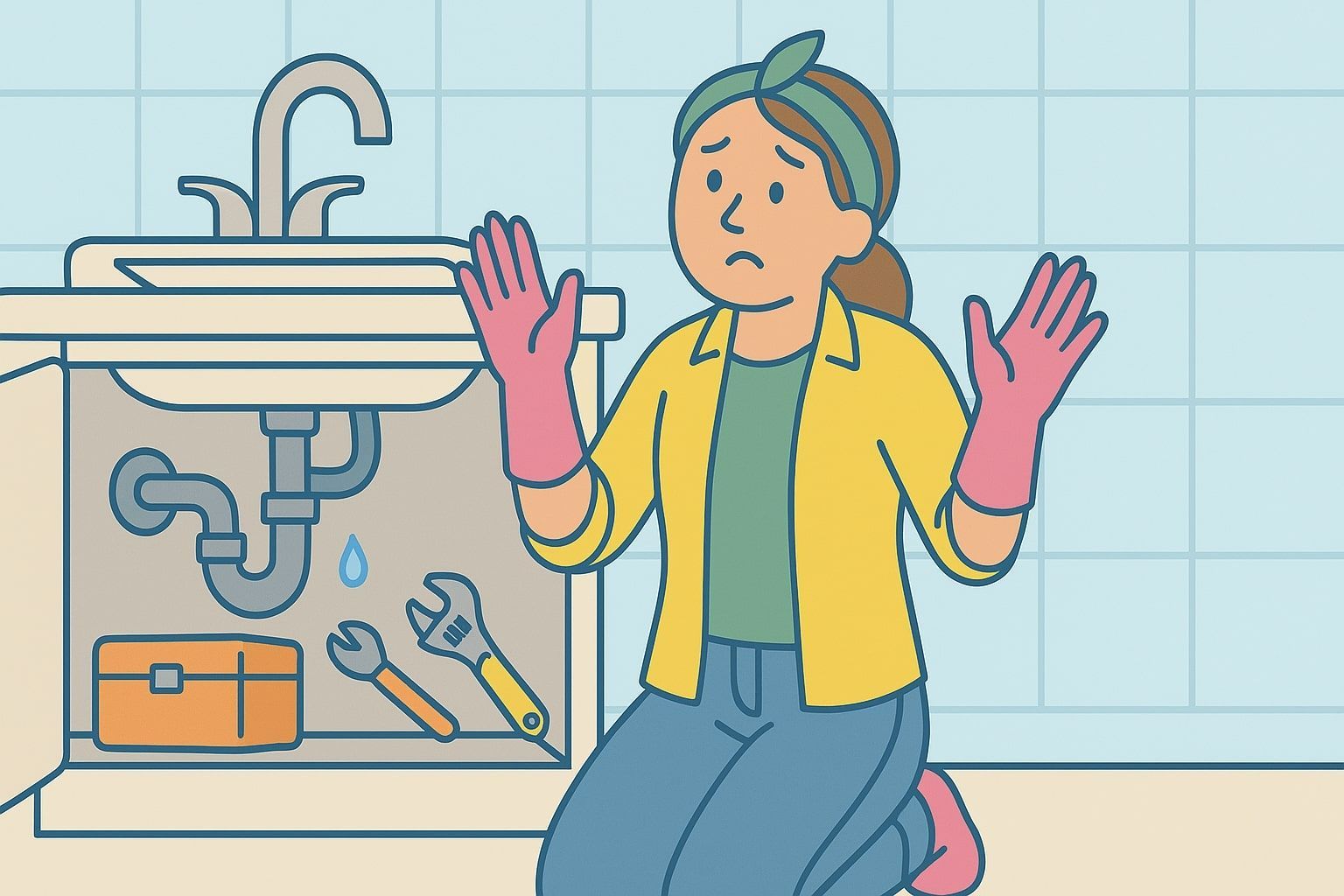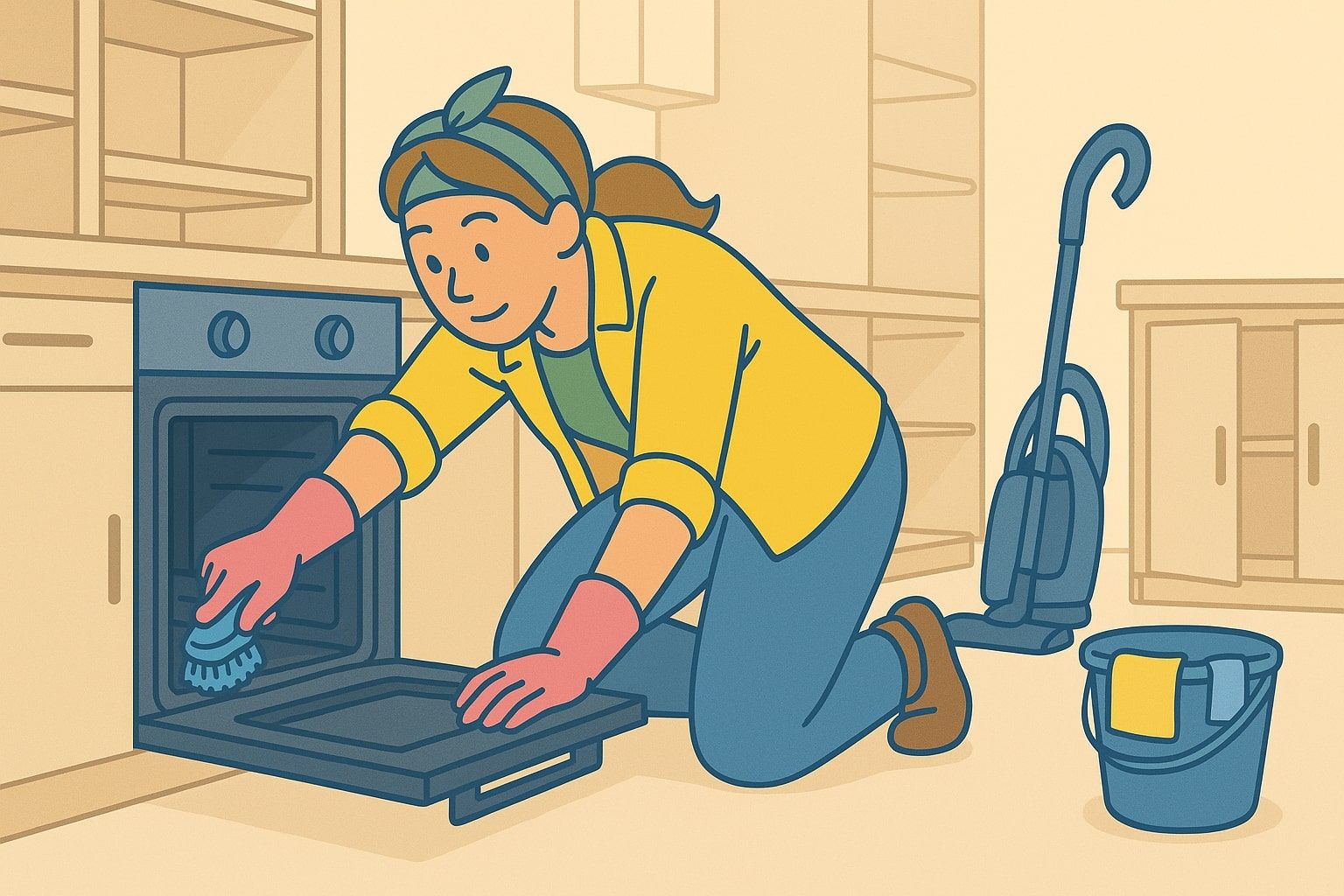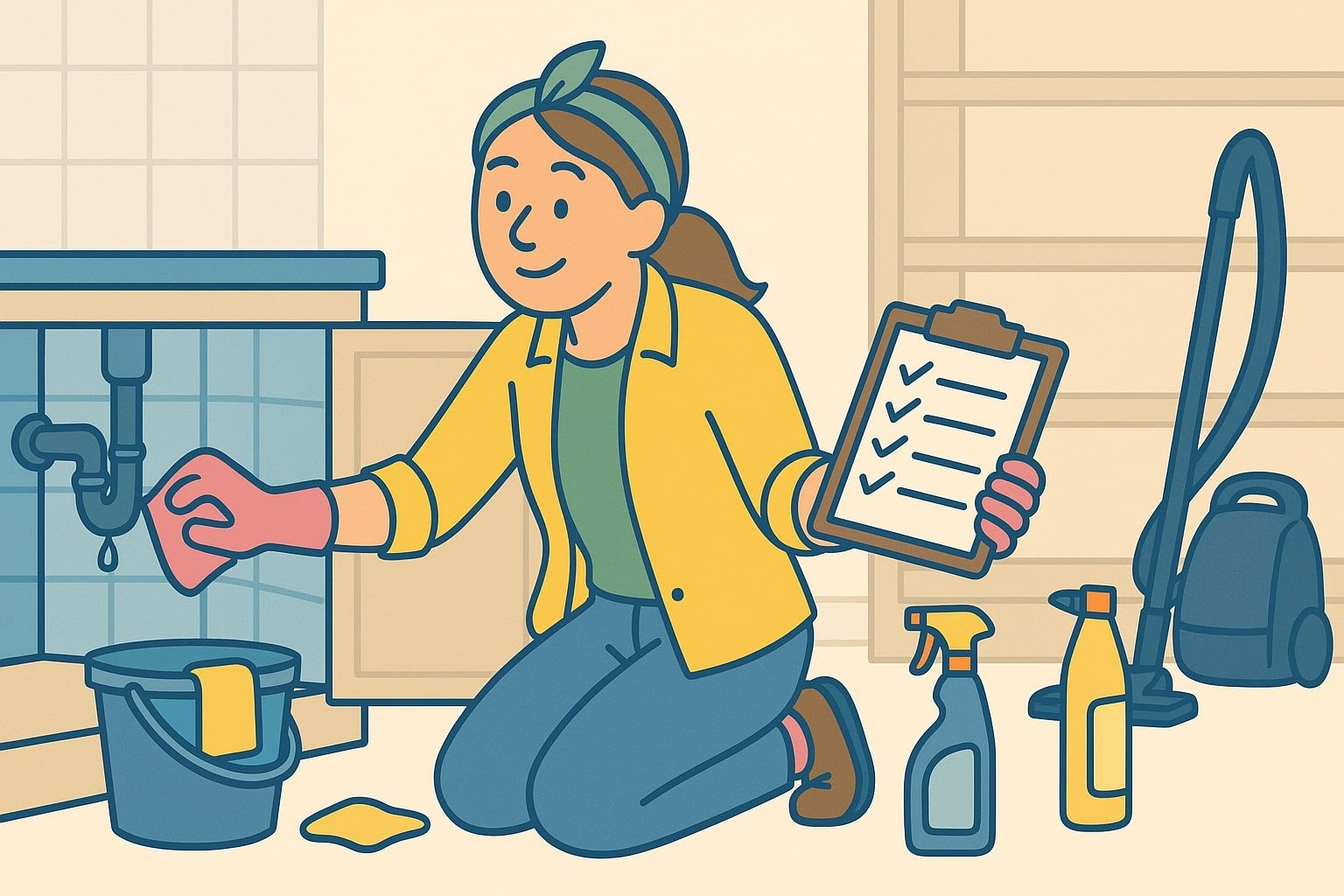Discover the unparalleled quality and exceptional customer satisfaction that sets We Clean Homes apart on its journey to becoming the premier home cleaning service in the UK. Request a quote today and experience the difference Michael Shaw, the visionary founder and managing director, is making in redefining industry standards.
What’s the Difference Between Regular Cleaning and Deep Cleaning? A Guide for UK Homeowners

Keeping a home clean sounds simple in theory, but when it comes to hiring a cleaner or choosing a service, many UK homeowners run into the same question: What’s the actual difference between regular cleaning and deep cleaning? The two terms are often used interchangeably, yet they refer to very different levels of detail, time, and results.
Understanding the distinction helps you choose the right type of clean for your home, your lifestyle, and your budget. This guide breaks everything down clearly and neutrally, so you can make an informed decision—whether you're looking for a cleaner for the first time or reassessing your current routine.
What Is Regular Cleaning?
A simple definition
Regular cleaning refers to routine housekeeping tasks designed to maintain general cleanliness and hygiene in your home. These are the jobs that prevent dirt from building up and keep things looking fresh week after week. It’s the type of clean most households think of when they picture someone coming in weekly, fortnightly, or monthly.
This type of maintenance routine makes more sense once you have a clear grip on understanding domestic house cleaning in general.
In the UK, regular domestic cleaning is the most common service homeowners use. It fits naturally around busy work schedules, family life, and day-to-day routines.
Typical tasks included
While every cleaner or company may vary slightly, regular domestic cleaning in the UK usually includes:
- General dusting of accessible surfaces
- Vacuuming carpets and rugs
- Mopping hard floors
- Cleaning bathrooms (toilets, sinks, mirrors, and a light wipe-down of the shower/bath)
- Wiping kitchen worktops and cupboard fronts
- Cleaning hobs and appliances externally
- Emptying bins
- Making beds or changing bedding if agreed
- Light tidying
These tasks focus on the main living areas and aim to keep on top of mess rather than tackle deep grime.
You can see a fuller breakdown of what’s usually included in a standard cleaning visit if you want a clearer idea of how regular cleaning is defined.
What regular cleaning doesn’t normally include
Regular cleaning is not designed for heavy-duty or time-consuming tasks such as:
- Cleaning inside ovens
- Scrubbing tile grout
- Washing walls
- Cleaning skirting boards in detail
- Moving large furniture or appliances
- Cleaning inside fridges, freezers, or microwaves
- Removing limescale build-up
- Deep dusting of light fittings, vents, or hard-to-reach places
Because regular cleaning is usually booked for 1–3 hours per session, cleaners focus on what can realistically be completed within that time.
These jobs fall outside the scope of routine housekeeping. If you want to compare them with day-to-day duties, take a look at typical tasks domestic cleaners handle.
Who regular cleaning is ideal for
A routine clean is suitable for:
- Busy professionals
- Families juggling work, children, and social life
- Elderly homeowners needing weekly help
- Pet owners wanting to control hair and odours
- Anyone who wants a cleaner, tidier home without deep scrubbing
It’s also the most cost-effective option for keeping your home consistently clean.
What Is Deep Cleaning?
A thorough, top-to-bottom clean
Deep cleaning goes far beyond a surface tidy. It’s an intensive, detailed clean that tackles areas where dirt, grease, or grime naturally accumulates over time. Most UK homeowners book a deep clean when they want their home “reset” to a high standard or before starting regular cleaning.
Deep cleans take longer, cover more areas, and often require additional equipment or stronger cleaning products.
Typical deep cleaning tasks
A deep clean often includes:
- Cleaning inside ovens, microwaves, and fridges
- Washing skirting boards, doors, and door frames
- Scrubbing kitchen tiles and backsplash areas
- Deep descaling taps, shower screens, and bathroom fixtures (limescale is a big UK issue!)
- Washing walls (where applicable)
- Dusting light fittings, blinds, window sills, radiators, and hard-to-reach areas
- Cleaning behind/under furniture and appliances
- Polishing stainless steel and detailed kitchen surfaces
- Cleaning plugholes and removing grime build-up
These tasks require more time, attention, and physical effort, which is why deep cleaning is priced higher.
When UK homeowners usually need a deep clean
Deep cleans are popular at:
- The start of a new regular cleaning plan – gives the cleaner a fresh baseline
- Spring cleaning – a traditional time for a full reset
- Moving in or out of a property
- After building or renovation work
- Before hosting guests or family events
- When hygiene has slipped due to a busy schedule, illness, or life changes
Many landlords and letting agents also require deep cleaning before tenants move in or out.
Key Differences Between Regular and Deep Cleaning
1. Level of detail
The biggest difference is depth.
- Regular cleaning focuses on everyday surfaces and visible areas.
- Deep cleaning tackles the hidden, neglected, or hard-to-reach places.
If regular cleaning keeps your home tidy, deep cleaning makes it feel brand new again.
2. Time required
- A typical weekly clean might take 1–2 hours.
- A deep clean might take 4–8 hours (sometimes longer depending on home size and condition).
Because UK homes vary widely—from compact flats to large family houses—time can differ greatly.
3. The cost
Deep cleaning is more expensive because:
- It takes longer
- It requires more labour
- It often uses additional or specialised products
- It involves more physically demanding work
Regular cleaning is usually priced by the hour.
Deep cleaning is often quoted as a full job or at a higher hourly rate.
4. Frequency
- Regular cleaning: weekly, fortnightly, or monthly
- Deep cleaning: every 3–6 months or as needed
Some homeowners book a deep clean twice a year (often spring and autumn) to keep their home fresh.
How to Choose Which Type of Cleaning You Need
Assess the current state of your home
If you haven’t done a thorough clean in months—or longer—you may benefit from a deep clean before starting regular visits. A deep clean removes build-up that routine cleaning can’t address.
Consider your lifestyle
If you have:
- Children
- Pets
- A busy work schedule
- A lot of foot traffic
- Limited time or mobility
…then deep cleaning every so often may help keep your home healthier and easier to maintain.
Think about your goals
Ask yourself:
- Do you want a fresh start?
- Are you aiming for maintenance rather than transformation?
- Are you preparing for an event, inspection, or move?
Regular cleaning is perfect for upkeep.
Deep cleaning is better when the home needs a full reset.
Budget considerations
While deep cleaning is more expensive, it can save money over time.
A home that’s deep cleaned periodically is easier, faster, and cheaper to maintain with regular cleans. You’ll also avoid the long-term build-up of limescale, grime, and grease, which can damage surfaces or appliances.
Personal preferences
Some UK homeowners book deep cleaning due to:
- Asthma or allergies (deep dust removal helps)
- New babies in the home
- Concerns about hygiene
- Preferring a high standard of cleanliness
Your priorities and comfort level matter just as much as practical factors.
FAQs
Do I need a deep clean before starting regular cleaning?
In many cases, yes. Regular cleaning maintains cleanliness—it doesn’t typically reverse build-up. Starting with a fresh, detailed clean helps keep the home in good condition.
Can I customise what’s included?
Most cleaners and cleaning companies allow some flexibility. You can usually request specific tasks, provided they fit within the time booked.
How long does a deep clean take?
This depends on the size and condition of the property. A small one-bed flat might take 3–4 hours, while a large family home could take most of the day.
Do cleaners bring their own products?
Some do; others may use what you provide. It varies across the UK, so it’s best to ask in advance.
How often should a deep clean be done?
Every 3–6 months is ideal for most households, though some prefer once a year.
Conclusion
Regular cleaning and deep cleaning both play important roles in keeping a home clean, healthy, and comfortable. Regular cleaning focuses on maintenance and everyday tasks, making it ideal for busy households. Deep cleaning, on the other hand, provides a detailed, top-to-bottom reset that targets the areas routine cleans don’t reach.
For many UK homeowners, the best approach is a combination of both: the occasional deep clean to maintain high standards, followed by regular sessions to keep everything in order.
If you're considering hiring a cleaner or deciding which type of clean your home needs, understanding these differences will help you choose the service that best aligns with your lifestyle, expectations, and budget.







